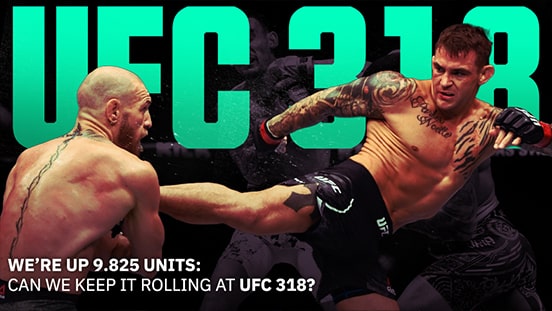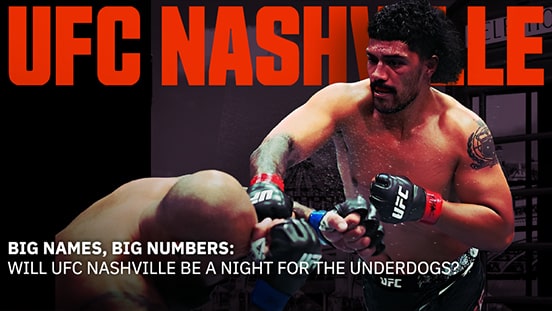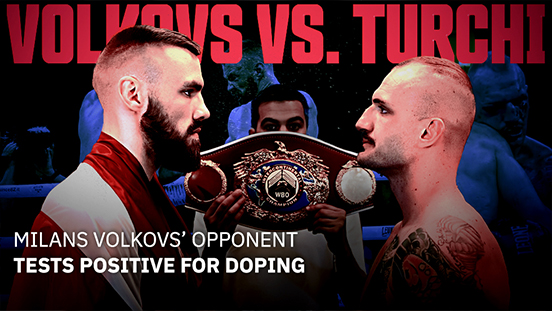Latvian rapper Sudrabu Sirds, previously known as Jera and Sudrabu Jera (but forever known as Deniss Jermakovs), is preparing for his October 19th “King of Kings” MMA fight against Kristaps Zutis at Arēna Rīga. Although his name resonates throughout the Latvian hip hop scene, Deniss has always maintained a sheet of privacy — but his upcoming combat ventures have brought him back into the public eye.
Bet on the Kristaps Zutis vs Sudrabu Sirds fight on LEX!
Deniss came up in a period when Latvian hip hop was still considered underground and lacking the mainstream relevance it has now. In this interview, we dive into the man behind the music, discussing his work, thoughts on the state of rap in our country, and how family life has shaped his identity.
You started out writing music for yourself and friends, right?
Yeah. My childhood wasn’t too bad, I think I just wasn’t properly looked after. I grew up without a father and was negatively influenced by the people around me, my uncles, my brother… Nobody had achieved anything remarkable in their lives and probably didn’t want to. So I grew up among all that chaos.
I started writing music very late, when I finished primary school. I was about 16 that summer, before I started vocational school. I wrote bars with my friends for a long time. We had nothing to do but listen to music, because we lived in a small village, in a small parish. We would come home from school, have a drink, rap. We spent 3-4 years like that, without going to the studio, just showing our work to each other. That’s how we found ourselves.
We decided to head over to the studio and record a demo. Slowly, something came out of that. Then I appeared in the Latvian music scene for the first time, with the big guys — Ozols, Nātre, Skutelis. When I was 20-25, we did something, but the scene was completely dead, so it’s hard to even say it was musically relevant. We released the album “Savs i Savs” and a couple of other projects, but lived in the shadows.
Do you ever miss that phase of creating without public attention?
Maybe not the phase without any attention, but… As the years go by, you start missing your youth. And how carefree you were. We flew where the wind blew us. Things are different now. Got bills to pay, and s**t. [laughs]
Speaking of flying — in your track “Lidmašīna”, you sampled Empire of the Sun. What attracts you to certain musical pieces or samples?
Just following the vibe and what feels cool. For example, the Empire of the Sun sample and beat felt so positive; there’s nothing not to like about it. Sometimes when I’m feeling good, I want to tap into that feeling. When I don’t feel good, I look for a darker sound. I just love music. It attracts me in every form, because every melody has its own energy.
I also like to experiment and see what I’m capable of, purely out of curiosity. Do I just have to generate rap on a beat, or can I also sing? I remember always telling people that one of my goals in life is to release a song that I don’t rap on.
Perfect leeway into our next topic: genres outside of hip-hop. Your work already shows you like to experiment, but is there a desire to shift into another genre? If so, what would it be and why?
I don’t even know! I have so many ideas, depending on the time and day. At one point, I had the idea of doing a garage project. For my wife and I, Red Hot Chili Peppers is one of our favorite bands. There’s probably no strict genre I could put myself in. You have to let it go freewheel, maybe put out an experimental project, see how it sounds.
Rap, for example, is a very rewarding format in itself — you can put it over any BPM. Rap has become so popular that you can combine it with any genre and any sound. On the internet, you see artists putting out their acapellas and people playing around with it, with different beats and vibes.
We have a rich, but small hip hop scene. What do you think about the current state of Latvian hip hop? How do you think the scene has changed?
We’ve certainly climbed a few levels. It’s incomparable to what it was 10 years ago, night and day. We also have a lot of hip hop artists in terms of numbers. If you look at the top lists at the moment, hip hop is easily competing with the so-called “musical gems” of Latvia.
But when Latvia realized that hip hop was popular, many people, including the media, started jumping on the bandwagon and pushing it everywhere they could as a product. It wasn’t really the right move to make, because initially, it wasn’t the right product either. It seemed that, if hip hop became popular, it would become more accepted. But the effect was the opposite.
The level that Latvian hip hop has climbed to might now start to drop, and only individual artists will be able to hold on. I don’t think there will be many of them. Speaking from experience: several years earlier, when Ozols was at the top, this genre was very popular. Ozols was everywhere. And then, suddenly, nobody was interested in hip hop anymore.
According to the artists headlining Positivus at that time, indie rock started to become quite popular as a genre.
That might be true! It could be that indie rock replaced hip hop for a while, gave it a break. We got Gacho, Gustavo… And after Ozols’ beef with Gustavo, the Latvian public discovered what the scene was like, so the country kind of turned its back on it. So, speaking of the current high wave in Latvian hip hop, I hope the same won’t happen now. To some extent, of course, it’s inevitable — there will be an overall decline at some point. But individual artists will only benefit from it.
When New Wavy came in, it was the first time you could truly feel the influence of the Internet and young people. At the same time, the general public and the parents of those young people didn’t like it very much. But that’s how it is! Everything is happening quite naturally and just as it should. Natural selection, everything in its own time. And there is only so much time artists can have in this scene, in this small country.
How do you see your own role in shaping this scene?
I have no idea. I don’t really see myself in Latvian hip hop, more as just a person. I see people mentioning me in interviews and it’s interesting because I’m just a regular family guy who changes his kid’s diaper every day. I also don’t think that, just because we all rap, we should all be friends with each other. I don’t wish anyone ill and I hope everything works out for everybody, but I stay in my own corner, follow just my boys and support them. That’s all.
You’ve talked about how important family and their support is. How does your family influence your music?
I couldn’t have achieved anything without my family. Thank God I got lucky with my wife, my children and everything else. When I write a song, my wife is the reason I want to do it well. My family inspires me to come and have a show in Latvia.
Family life itself is very down to earth. It’s routine. Sometimes it feels like I’m the only family rapper. [laughs] A lot of people live that rock ‘n’ roll life. When you have kids, your whole perspective changes. There’s nothing more important in the world, and it’s instinctive. You have to lead by example. When it comes to our children, we try to fill in the gaps we ourselves lacked, so that the cycle doesn’t continue.
Of course, I don’t write myself off as just a dad — I still have a life outside the family. But being a father changed me. With nothing to strive for, you lose focus and have a lot of time to burn aimlessly.
Your lyrics often reflect your personal views and experiences. How do you balance being vulnerable but honest in your music?
If you say something from the heart, be as honest as possible. Writing from personal experience and talking about your inner feelings… Yeah, to be honest, that’s the most important thing. What I’ve said in my songs has already been said. We all grow and change, and so do our opinions. Sometimes it feels like something could have been left unsaid — but it’s not worth thinking about it. The song is out, people have already heard it. How will you know you’ve grown if you have nothing to compare it to?
How do you continue to push yourself creatively, having been in the industry for more than 15 years? Do you ever feel the pressure to completely reinvent yourself?
Yeah, 15 years, that’s what they say. [laughs] I’ve been thinking about vlogging or doing podcasts. At the same time, it’s probably more important for me to keep doing what I love. I don’t know if I’m the right personality for videos or podcasts. When I turned 30, I started to reinvent myself personally — living healthier, taking care of myself.
What advice can you give to young rappers in an environment dominated by social media, given how commercial the music industry is and how important trends are?
If I started making music now, I’d make sure I had a unique product to offer. From a business point of view, the best option is to put out hits and pretty much spam every feed. There’s a lot of pressure globally, but in Latvia, it actually doesn’t seem that important to follow trends. The market is small — so the pot is small. Sooner or later, if you make good content and do it from the heart, you’ll be noticed. But if you push it too much, especially among Latvians, people will turn away. That’s how we are, as a nation.












